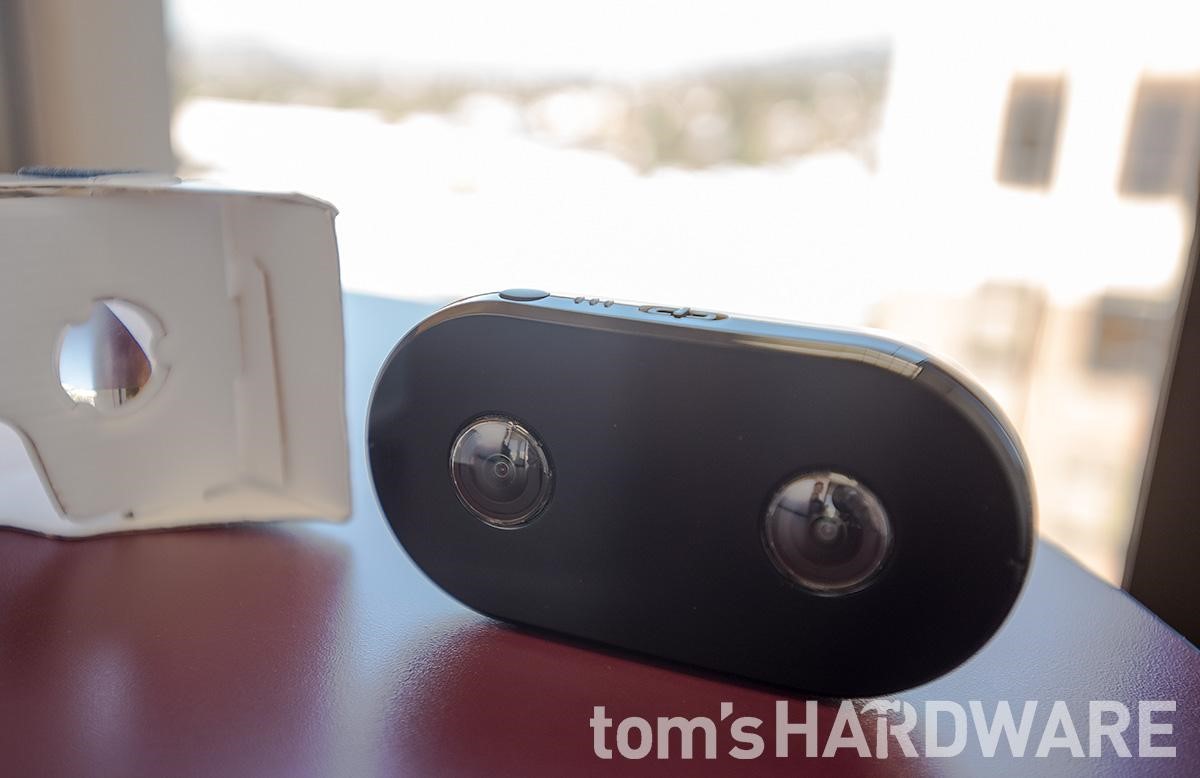Lucid Shifting Focus From Hardware to AI-Driven 3D Software
Lucid, the company that created the first VR180 camera, announced today that its shifting away from the hardware business and into the software licensing business. Lucid is now offering its LucidCam’s 3D Fusion AI-enhanced 3D and depth technology to hardware manufacturers so they can incorporate it into their devices.
Han Jin, Lucid's founder, explained that when the company first introduced the LucidCam it was blazing new ground in the consumer market. Binocular camera rigs existed at the professional level, but you couldn’t buy a dual-lens VR camera for home use yet. Today, the market has evolved, and there are several devices available that offer dual-lenses that can perceive depth and do 3D mapping, including a handful of Google VR180 cameras and high-end smartphones, such as the iPhone X. Considering these market changes, Han is moving Lucid away from the consumer hardware business. He sees more opportunity in licensing his company's AI system, which is said to “mimic how the brain processes and learns from what humans see with two eyes,” to other device makers than building branded devices.
Lucid's software solution isn't just for cameras. The technology could be applied to a range of devices, including “mobile phones, robots, drones, VR/AR and security cameras.” With Lucid’s 3D Fusion technology, those devices could forego “expensive and space-consuming hardware solutions, such as depth sensors,” which could enable hardware companies to offer less expensive alternatives to existing products. Lucid claims its 3D Fusion technology is “ideal for any real-time 3D/depth enabled applications.”
But Lucid isn’t completely abandoning the hardware business. The company will continue to sell the LucidCam for the time being. However, it won’t be investing in a second generation LucidCam for the consumer market. Instead, it will form partnerships with hardware companies, similar to a recent agreement it forged with RED, to create high-end VR cameras leveraging Lucid’s software.
The company didn’t reveal which companies that it’s working with; however, the company said that it is “already incorporating its software into devices from several mobile phones, camera and robot makers as well as working with laptop, drone and chip makers to enhance their next-generation products.”
Lucid was the first company to offer a VR camera with binocular lenses with a consumer-friendly price tag. It first introduced the LucidCam 180-degree VR camera in 2015, when it launched an Indiegogo campaign to help fund the project.
Get Tom's Hardware's best news and in-depth reviews, straight to your inbox.
Kevin Carbotte is a contributing writer for Tom's Hardware who primarily covers VR and AR hardware. He has been writing for us for more than four years.
